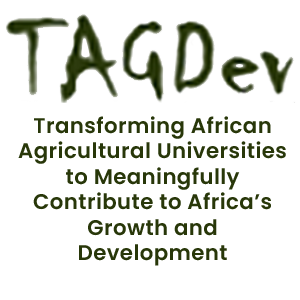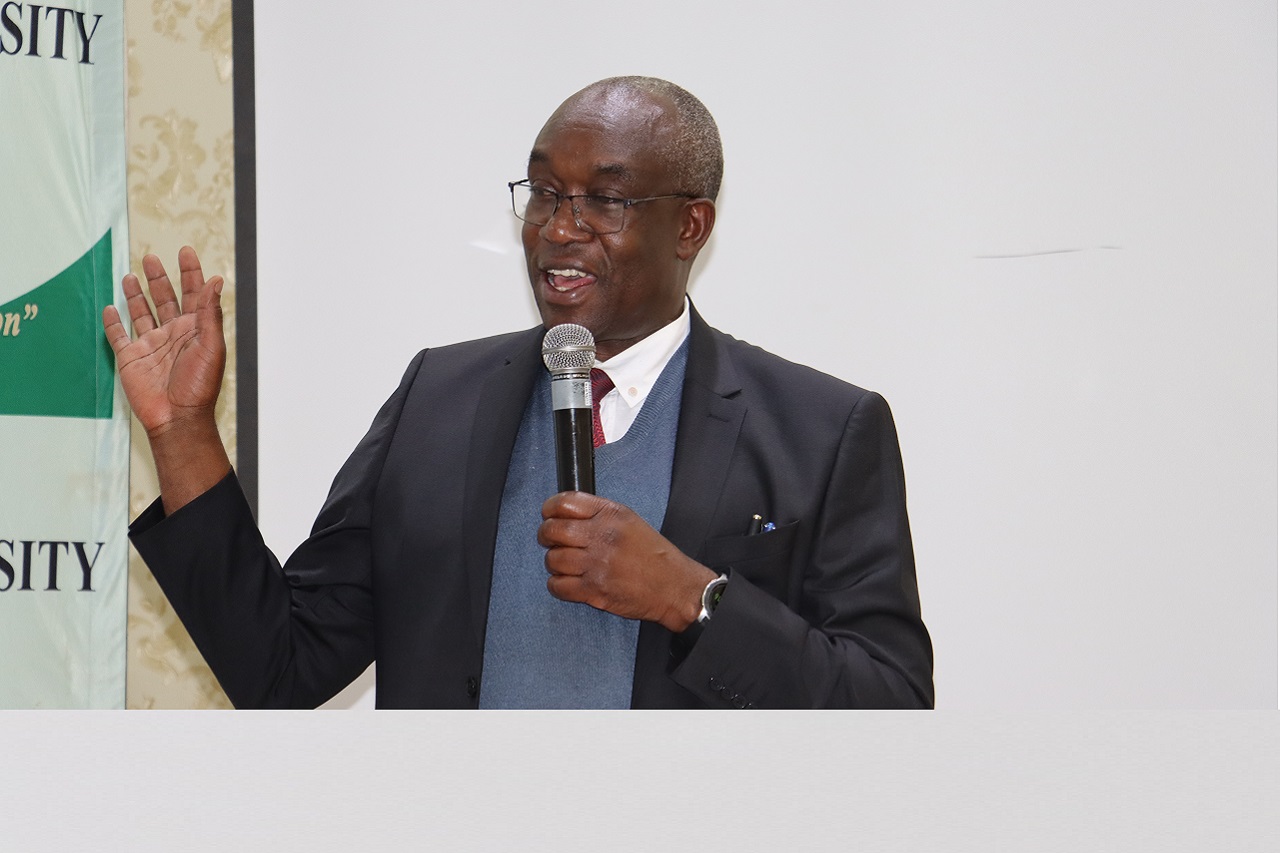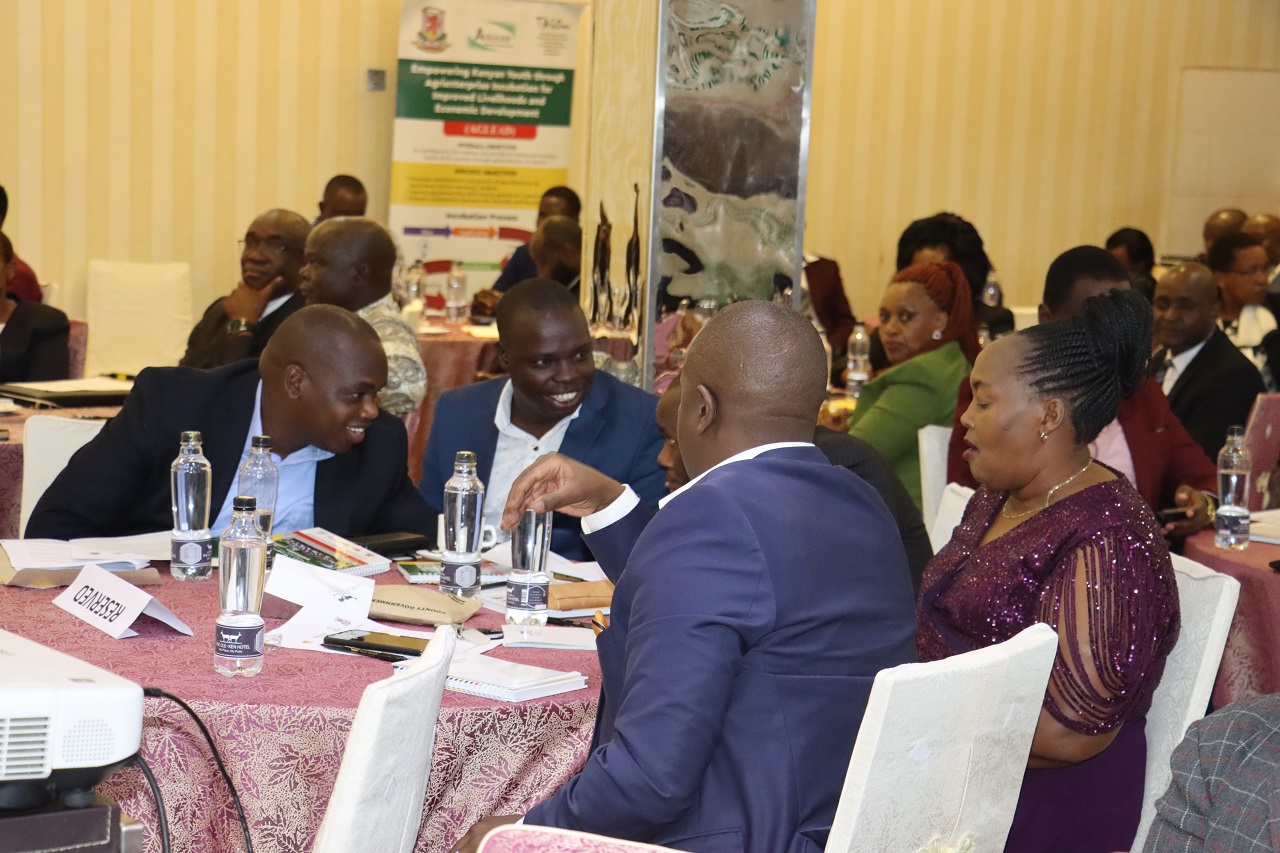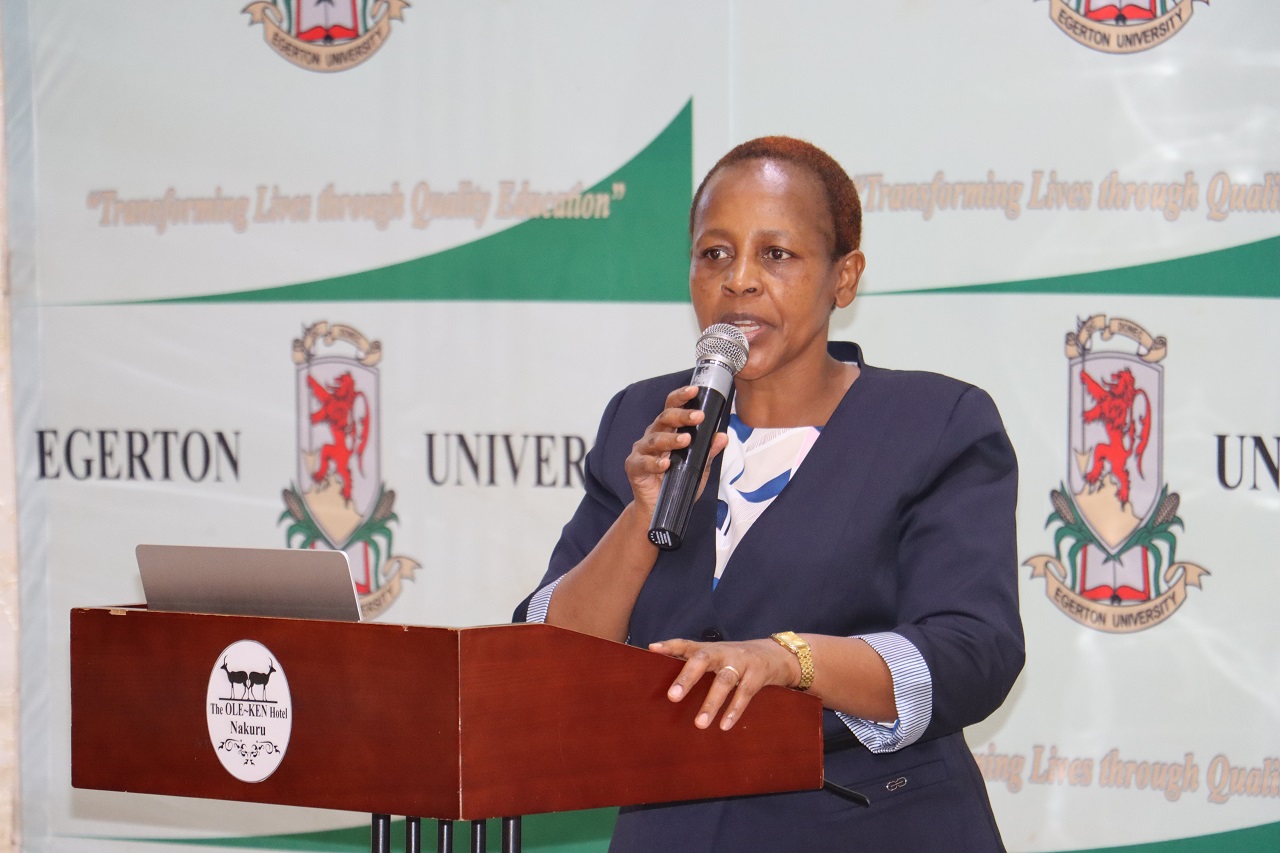TAGDev Program hosted a Policy Dialogue with the Nakuru County Government and other key stakeholders, focusing on agriculture as a catalyst for youth employment and the growth of small and medium-sized enterprises (SMEs). Held in the heart of Nakuru City on 28th May 2024, the dialogue underscored the collaborative efforts needed to transform agricultural sectors and foster economic opportunities for young people.
The event saw remarks delivered on behalf of Prof. Isaac O. Kibwage, Vice-Chancellor of Egerton University, by Deputy Vice-Chancellor (Academics, Research & Extension), Prof. Bernard Aduda. Reflecting on the progress of TAGDev 1.0, Prof. Kibwage highlighted significant strides made in areas like Subukia, Solai, and Turi in Nakuru County. "Projects such as the Cassava Value Chain CARP, led by Professor Richard Mulwa, and the Seed Potato CARP, under Professor Anthony Kibe, have substantially benefited local farming communities," he noted. These successes underscore the power of academia, government, and private sector partnerships in driving agricultural productivity and improving livelihoods.
Egerton University has committed itself to furthering these collaborative efforts, aiming to co-create policies that support youth-driven economic growth through entrepreneurship. "Today's policy dialogue is about fostering these partnerships and creating an enabling environment for youth employment," Prof. Aduda emphasized. The objectives of the dialogue included engaging policymakers, highlighting the crucial role of empowered youth in economic development, and promoting inclusivity through community engagement.
Prof. Nancy Mungai, TAGDev Coordinator and acting Director of Research and Extension at Egerton University, provided an overview of the TAGDev Program. Launched in partnership with the Regional Universities Forum for Capacity Building in Agriculture (RUFORUM) and Gulu University in Uganda, and supported by the MasterCard Foundation, the “Transforming African Agricultural Universities to meaningfully contribute to Africa’s Growth and Development (TAGDev)” ran for a period of eight years (2016-2024). Over the years, it has provided scholarships to 188 students from 14 African countries, emphasizing experiential learning, community engagement, and entrepreneurship. Prof. Mungai stressed that the policy dialogue's main objective was to promote collaborations among stakeholders to create an environment conducive to a youth-driven economy through enhanced entrepreneurship.
Mr George Osure from the MasterCard Foundation commended TAGDev for organizing the dialogue, noting its importance in extending the conversation beyond academia to the public. He highlighted the essential role of an ecosystem where universities, the private sector, and government collaborate to ensure policy effectiveness.
Representing Nakuru Governor Susan Kihika, Mr Leonard Bor, the County Executive Committee Member (CECM) for the Department of Agriculture, Livestock, Fisheries, and Cooperatives, pointed out the opportunities within agriculture for youth. Despite challenges like limited access to land, finances, markets, and incentives, he emphasized the County Government's commitment to prioritizing youth-related policies and collaborating with institutions like Egerton University to build capacity. Also present was Ms Josephine Atieno the County Executive Committee Member – CECM for the Department of Youth, Gender, Culture, Sports and Social Services.
Prof. Patience Mshenga, Dean of the Faculty of Agriculture and Assistant TAGDev Coordinator, delivered the keynote address. She detailed the potential of agriculture as a driver for youth employment and SME growth. Key actions to support youth in agriculture include providing incubation, financial, and technology support, business development assistance, reducing regulatory barriers, offering tax incentives, investing in digital infrastructure, and combating corruption. Prof. Mshenga also noted that globalization and technological advancements have opened new avenues for trade and value addition in agriculture. She stressed the importance of starting agricultural education at a young age to foster a positive attitude toward the sector among youth.
The dialogue featured a panel discussion on translating discussions into actionable steps to assist youth. Panelists included Mr Bor, CECM Youth Ms Atieno, Wanda Feeds Managing Director Mr Habib Parkar, Tegemeo Institute’s Dr Timothy Njagi, and a representative from the Micro and Small Enterprises Authority (MSEA) Ms Caroline Kioko. They explored practical ways to create job opportunities and support young entrepreneurs.
The event saw a representation from the University Management Board, including acting Deputy Vice Chancellor (Administration, Finance & Planning) Prof. Richard Mulwa, who served as a moderator, Registrar Academic Affairs Prof. Mwanarusi Saidi, acting Chief Finance Officer Mr Charles Wanjohi, and acting Registrar Human Capital Ms Maureen Ngala. Faculty and staff members from Egerton University and representatives from other universities such as Karatina University and Pwani University also attended.
As the dialogue concluded, it was clear that the collaborative spirit nurtured by TAGDev holds great promise for the future of youth employment in agriculture. The event highlighted the importance of continuous engagement, policy support, and community involvement in transforming agriculture into a vibrant sector that empowers the youth and drives economic growth.
Bridging the Gap: The Road Ahead
The TAGDev Policy Dialogue in Nakuru City was more than just a meeting of minds; it was a beacon of hope for many young people looking to agriculture as a viable career path. The discussions underscored the potential of agriculture to create jobs, drive entrepreneurship, and foster economic development. As stakeholders work together to implement the ideas and policies discussed, the youth of Nakuru and beyond can look forward to a future where their dreams and ambitions in agriculture become a reality.
By Agnes Mwangi











